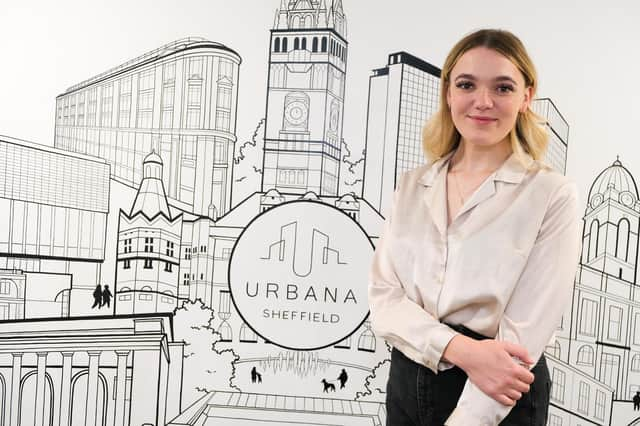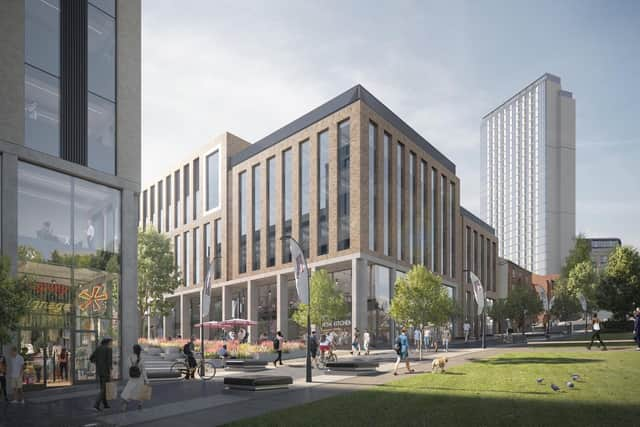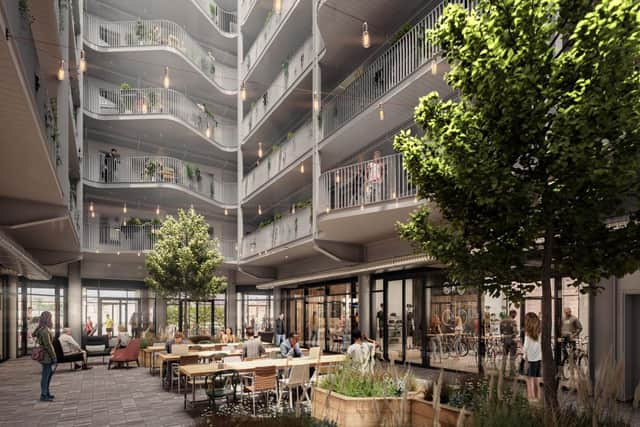Urbana Town Planning takes Yorkshire’s future seriously


Building a sustainable future
The day after the Yorkshire Post’s Climate Change Summit marked Cities, Regions and Built Environment day at COP26 in Glasgow. Both events created opportunities for discussions in our office, not only with our colleagues but with our clients too.
The main point we could all agree on is that as Urbanists and Planners, we have a fundamental role and responsibility to deliver climate change objectives as part of development in our cities.


With planning comes great responsibility
Here in Yorkshire, we heard at the Climate Change Summit that as a region of 5.5 million, we have great ability and responsibility to help with the national and global effort. But within our region, what role should cities play?
Centre for Cities, a think tank dedicated to improving the economies of the UK’s largest cities and towns, reported that on average the carbon emissions caused by city-dwellers are over 30% lower than those of us living in the rest of the country.
In large part this is due to what makes cities, cities. Denser urban areas make it possible to adopt more sustainable transport options to get to work or to local amenities. This is because journeys are shorter, so they can be more easily walked, cycled, or carried out using public transport.


It won’t come as a surprise that housing within existing built-up areas and near public transport network also tends to be more energy-efficient. If we’re to make any progress with the climate crisis, we need to continue to change how we use our cities.
Local Authorities and councillors must do more to make sure developments are more sustainable by radically increasingly density in cities. This might mean putting short terms concerns to one side to tackle what is a climate emergency. For example, there may be instances where the benefits outweigh the negatives in building taller in conservation areas.
If our elected representatives are serious about the climate-related promises they have made, then they have to make some tough decisions.
For our part, our professional responsibility as Urbanists comes from showing clients a better way of doing things when it comes to the environment, taking a sustainable approach to the planning process and holding Local Authorities to account.
We must make cities accessible and open for all. The only way we can do that is by understanding the experiences and needs of different societal groups.
Making cities better for all
An example of this in practice is our work with Sheffield Hallam University. We have recently achieved consent for the first phase of the University’s Campus Plan, which includes the demolition of the old Science Park and the erection of three new buildings around a public University Green. The designs include the latest technology and measures to make the new buildings zero carbon ready. They include the use of sustainable energy solutions such as heat pumps, maximising the use of photo voltaic panels and provisions to support and promote sustainable travel.
We also worked closely with property developers, Grantside, to achieve consent for a regeneration scheme in Kelham Island, Sheffield. The Hive Central is a car-free co-living development located in the city centre and the design team has worked hard to achieve a development which aspires to achieve net zero carbon through carefully chosen recyclable materials.
Outlook on 2022
There are some great minds in the built environment sector, and now is the time to pull together some urgent solutions. National planning reforms may be up in the air, and the rug may have been pulled out from the eastern leg of HS2, but 2022 still offers the opportunity for us to get things right in Yorkshire.